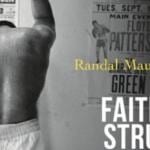If you shine powerful flashlights into the more benighted corners of university humanities departments, you can probably find people who still believe that Christianity historically opposed scientific inquiry, and actually held back human progress. This myth found eloquent expression some years ago in a Family Guy episode in which Baby Stewie and Brian the dog visit a hyper-advanced technological civilization. This proves to be the alternate world that would have existed in our own time if Christianity had failed, and civilization had thus escaped “the Dark Ages of scientific repression.” It’s an entertaining myth, which should find credibility, well, only among babies and dogs. But a program like Family Guy will reach a mass audience vastly bigger than the total readership of all the New Atheist tracts combined.
Some version of that Baby Stewie Theory surfaces regularly in seriously intended documentaries about the history of science, about pioneers like Galileo and Darwin. When you have a scientist who incontestably was passionately religious—think of Augustinian friar Gregor Mendel—then you have to portray him in perpetual conflict with the constricting orthodoxies of his faith.
We think for instance of the popular vision of Columbus insisting that the world was round, to the derision of ignoramus monks who warned that he would fall off the edge. In reality, Christian scholars had known for a thousand years that the world was round. Their quarrel with Columbus was that the upstart navigator thought it was much smaller than they believed, and the Church consensus was dead right. Nobody could sail three thousand miles west of Spain and hit Japan. Still, the myth of Christian backwardness and superstition is too useful to be discarded because it just happens to be bogus.
I quote a valuable article by Philip Ball from the British Guardian, a left-oriented paper that is not noted for its religious sympathies. But as the author says,
Historians of science oscillate between exasperation and resignation at the fact that nothing they say seems able to dislodge these convictions. They can point out that Copernicus’ book, published in 1543, elicited little more than mild disapproval from the Church for almost a century before Galileo’s trial. They can explain that [Giordano] Bruno’s cosmological ideas constituted a rather minor part of the heretical charges made against him. They can show that it was Galileo’s provocative style and personality – his readiness to lampoon the Pope, say – that landed him in trouble, and that he was wrong anyway in some of his astronomical theories and disputes with clerics (on tides and comets, for example). They can reveal that the conventional narrative of science versus the Church was largely the polemical invention of John William Draper and Andrew Dickson White in the late nineteenth century. It makes no difference. In the “battle for reason”, science must have its heroic martyrs.
In response, we can easily point to all those great scientists who were Christian—if not always orthodox—and who worked to glorify God. It was Sir Isaac Newton whose Principia proclaimed that
This most beautiful system of sun, planets, and comets, could only proceed from the counsel and dominion of an intelligent and powerful Being . . . and on account of his dominion he is wont to be called Lord God.
Yet we can never produce enough examples to disprove the overarching theory that the churches always hated science, no matter how many achievements we may cite by Father X or the Reverend Y. But we can recall and celebrate the core principles upon which they acted, those principles that for a millennium guided the advance of Western intellectual life. A newspaper cartoon some years back imagined how much better the world might have been if the Bible had contained a single verse saying, “The world is full of interesting stuff. Go out and discover it!” In reality, that phrase perfectly epitomizes the historic Christian attitude to science. (See Chris Gehrz’s excellent blog at this site from some days ago).
The central idea is beautifully summarized in the title of the work by pioneering English naturalist John Ray, who in 1691 glorified The Wisdom of God Manifested in the Works of Creation. Ray was an exceptionally important scientific pioneer, who was one of the founders of the science of botany, and was also a co-creator of other life sciences. I quote from a review of a recent biography of Francis Willughby, the founder of ornithology:
Willughby’s investigations were undertaken in close collaboration with his friend and former tutor, the naturalist John Ray. While a student at Cambridge Willughby had worked on Ray’s groundbreaking botanical studies and they later travelled extensively in Europe, collecting the books, images, curios and specimens that would form the basis of their future work. After Willughby’s death from what seems to have been pleurisy, it was Ray who organised his extensive papers into publishable form. The Ornithology [1670], published four years after Willughby’s death, was first; followed in 1686 by Historia Piscium (‘History of Fishes’) and then in 1710, five years after Ray’s death, by a volume on insects, Historia Insectorum, which was brought to publication from Ray’s papers by a committee of the Royal Society and credited by them solely to Ray.
For Ray, these were all manifestations of divine Wisdom. Like so many before and after him—well into the twentieth century—Ray was grounding his scientific work in a primary and indeed fundamental theme in Christian thought. Yes, God demands faith, but He has also left tokens of His Wisdom throughout Creation, and has granted His creatures the intelligence and the desire to seek them and make them known, both for his glory and for the benefit of mankind.
As Ray wrote,
The particulars of this Discourse, serve not only to Demonstrate the being of a Deity, but also to illustrate some of his principal Attributes, as namely his Infinite Power and Wisdom. The vast multitude of Creatures, and those not only small but immensely great: The Sun and Moon, and all the Heavenly Host, are Effects and Proofs of his Almighty Power. The Heavens declare the Glory of God, and the Firmament sheweth his handy Work, Psal. 19. 1. The admirable Contrivance of all and each of them, the adapting all the parts of Animals to their several uses: The Provision that is made for their Sustenance, which is often taken notice of in Scripture, Psal. 145. 15, 16. The Eyes of all wait upon thee, thou givest them their Meat in due season. Thou openest thy Hand and satisfiest the desire of every living thing. Matth. 6. 26. Behold the Fowls of the Air: for they sow not, neither do they reap, nor gather into Barns; yet your Hea∣venly Father feedeth them. Psalm. 147. 9. He giveth to the Beast his food, and to the young Ravens when they cry: And Lastly, Their mutual subserviency to each other, and unanimous conspiring to promote and carry on the publick Good, are evident Demonstrations of his Sovereign Wisdom.
Note how Ray is using scriptures. As a good university man, he would have attended chapel services very regularly in his college, and the main readings he would hear regularly would be the Psalms. In the psalms, he found a proclamation of a whole natural theology. In exploring the world, in revealing the heavens, believers are not violating mysteries that should be kept hidden, but discovering those things that God meant to be brought to light. Newton, Ray and Willughby were all members of the Royal Society, which pioneered so much of modern science, and which was wholly based on those principles: the Wisdom of God is manifested in the works of Creation. Go look for it.
For Christians, then, science is not the enemy but something closer to a form of worship. For centuries, the world’s greatest Christian church was Constantinople’s Hagia Sophia, which commemorated not an obscure “Saint Sophia,” but the creative Holy Wisdom through which the world was made.
More next time on how that idea has played out through the history of science.

















